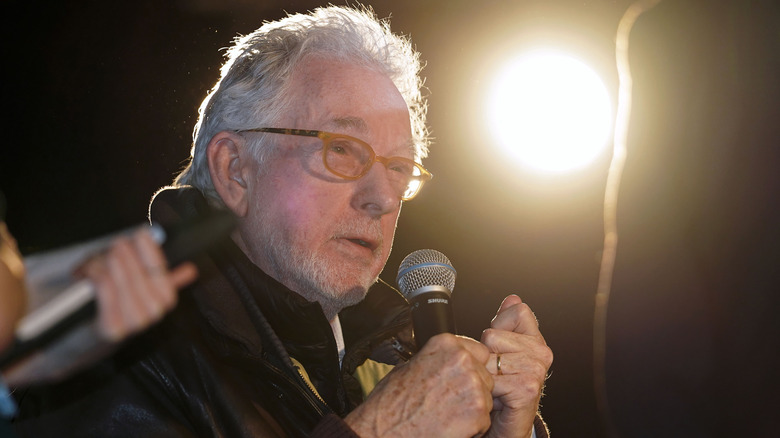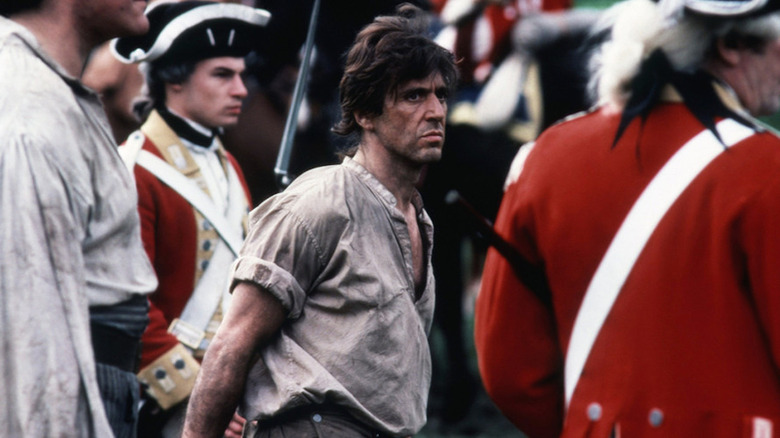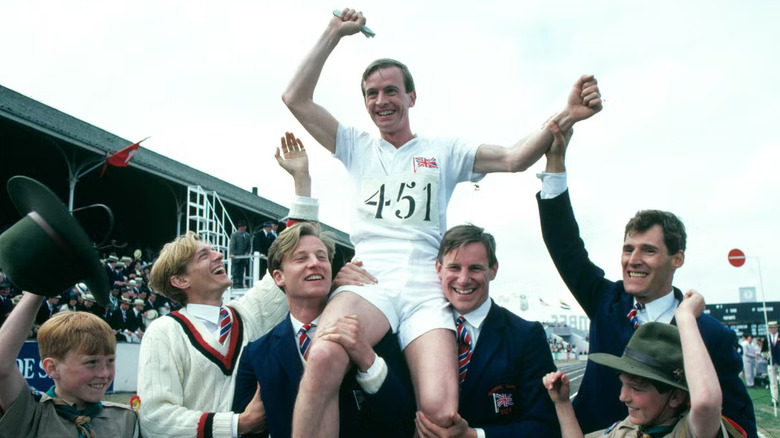Chariots Of Fire Director Hugh Hudson Has Died At 86
Hugh Hudson, director of the Oscar-winning classic "Chariots of Fire," has passed away at the age of 86. According to a statement released by his family, Hudson "died at Charing Cross hospital on 10 February after a short illness. He is survived by his wife, Maryam, his son, Thomas, and his first wife, Sue."
Hudson's fact-based drama about British runners Harold Abrahams (Ben Cross) and Eric Liddell (Ian Charleston) was a surprise critical and commercial smash in 1981, earning four Academy Awards (including Best Picture) and out-grossing splashy studio releases like "For Your Eyes Only" and "Clash of the Titans." The film became a pop cultural phenomenon due in part to Vangelis' main theme, which topped the Billboard Hot 100 for one week in 1982 and inspired parodies in films like "Mr. Mom" and "National Lampoon's Vacation." But despite its staid period setting and deliberately paced narrative, Hudson's movie touched the hearts of moviegoers all over the world with its depiction of two men driven to excellence by their very different faiths.
Hudson never reached the artistic heights of his first fiction feature, but he nevertheless carved out a varied filmmaking career that began relatively late in life.
The thankless burden of Oscar-winning expectations
Born on August 25, 1936, to Michael Donaldson-Hudson and Jacynth Mary Ellerton, Hudson attended Eton College and began working in film as an editor on documentary movies. He founded a documentary production company with famed graphic designers Robert Brownjohn and David Cammell (brother of influential British director Donald Cammell) but quickly turned his focus to advertising. He joined Ridley Scott Associates (RSA) in the 1960s, and like his brilliant commercial-directing peers (Ridley Scott, Tony Scott, Alan Parker, and Adrian Lyne) eventually gravitated toward feature-length filmmaking.
After shooting the documentary "Fangio: A Life at 300" about Formula 1 driver Juan Manuel Fangio, the 44-year-old Hudson was hired by producer David Puttnam to direct "Chariots of Fire." Puttnam viewed the tale of Abrahams and Liddell as a stirring drama about overcoming religious prejudice. Abrahams ran to combat antisemitism, while Liddell sprinted for the glory of god. Whereas the Scotts, Parker, and Lyne infused their films with heightened commercial style, Hudson served the material and made a deeply moving film that foregrounded the struggle of its two underdog athletes. The movie won the hearts of Academy members, who voted it Best Picture over that year's favorite, Warren Beatty's "Reds."
Hudson evidently grew finicky after the success of "Chariots of Fire," and probably could've been finickier. He followed up the Oscar-winner with "Greystoke: The Legend of Tarzan, Lord of the Apes," a passion project for screenwriter Robert Towne. When Towne was forced off the movie by David Geffen, Hudson stepped in and made a film that was gorgeous and tedious in equal measure. His next film, 1985's "Revolution," was a catastrophic flop that lost over $20 million for Columbia Pictures and drove Al Pacino to a four-year hiatus from acting. Hudson maintained that the movie was rushed into theaters, and salvaged its reputation to a degree with a 2009 director's cut.
A race well run
His best movie outside of "Chariots of Fire" was "Lost Angels," an unsentimental exploration of Los Angeles juvenile delinquency that comes on as a sullen, late-'80s variation on "Rebel Without a Cause" before losing its nerve with an unconvincing upbeat ending. The Beastie Boys' Adam Horovitz is quite good as the troubled youth who spars and, unexpectedly, sympathizes with an unconventional psychiatrist (Donald Sutherland), and Hudson seems invigorated to be far away from the fusty period confines of his previous movies. It's a movie ripe for rediscovery.
Of Hudson's subsequent work, "My Life So Far" is an agreeable, laid-back hang at a Scottish country house in the 1920s. We observe a year in the life of a ten-year-old child and get to watch his family of eccentrics (brought to life by a formidable ensemble that includes Colin Firth, Rosemary Harris, Malcolm McDowell, and Irène Jacob) collide to amusing effect. It's a minor pleasure that never dares to burst free of its modest trappings. It lacks the unmitigated joy of Liddell throwing back his head in divine ecstasy as he runs the greatest race of his life. But most directors' careers lack that. Hudson might've peaked with his first movie, but he summited in the most rarefied of air.


